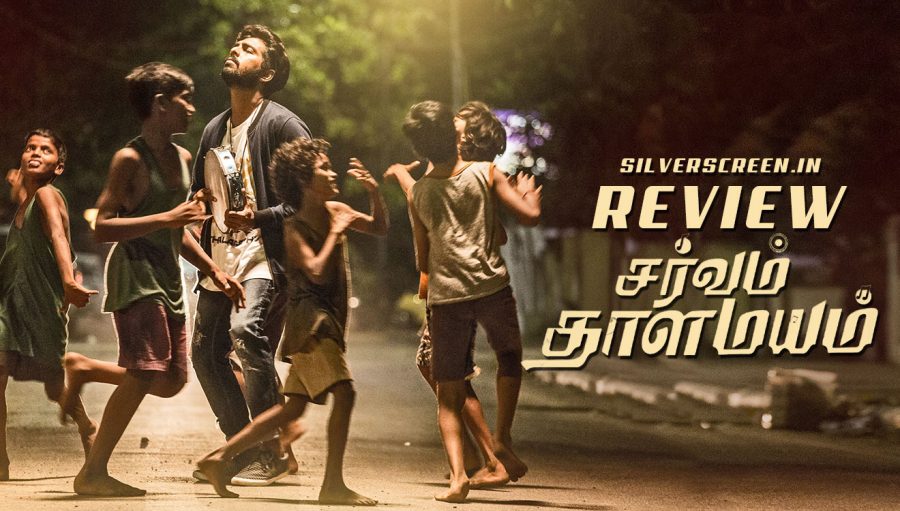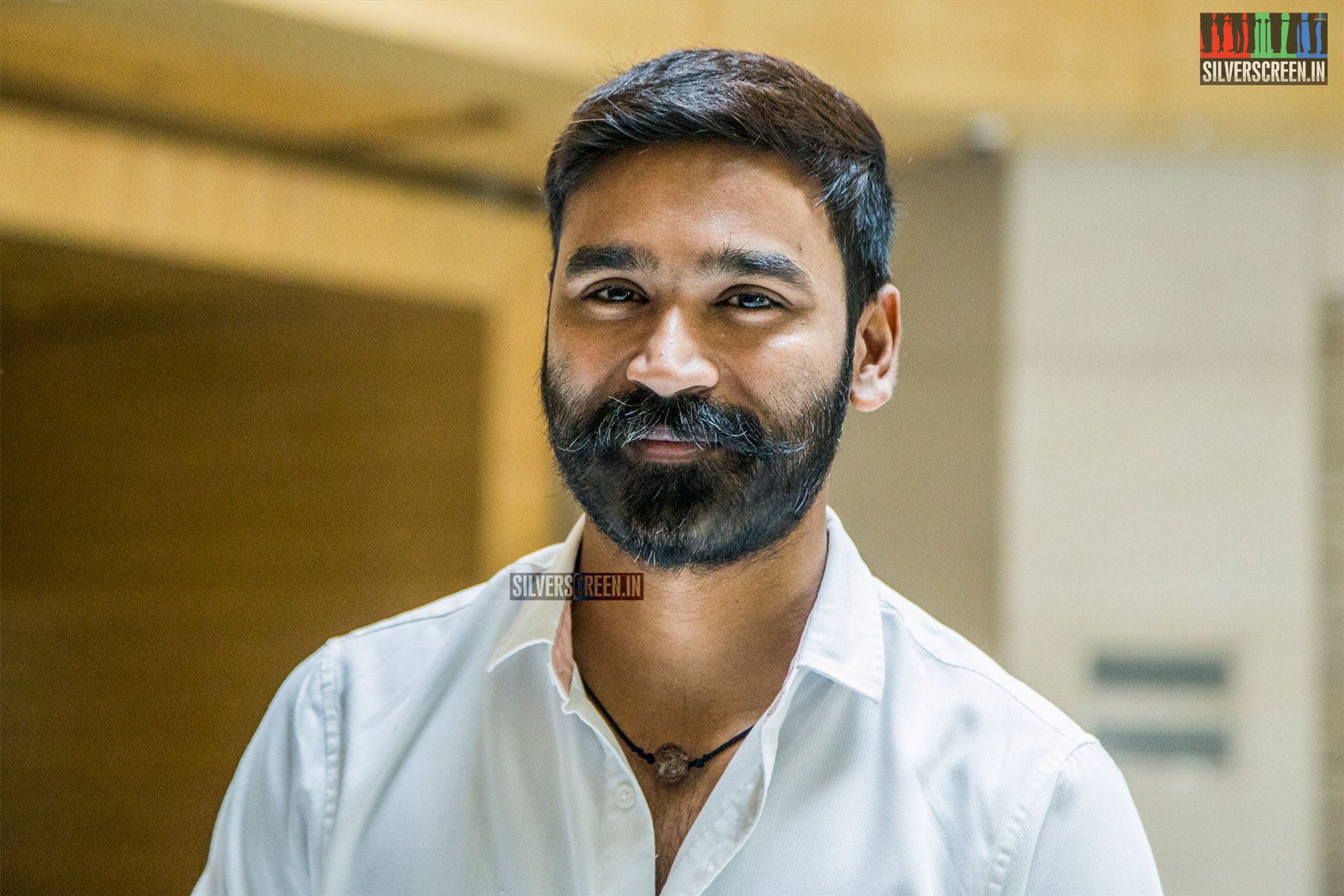*Contains spoilers*
Director: Rajiv Menon
Cast: GV Prakash Kumar, Aparna Balamurali, Nedumudi Venu
Composer: A R Rahman
It is funny and slightly disconcerting to see an agitated Sikkil Gurucharan on screen in Rajiv Menon’s Sarvam Thaala Mayam. The usually irenic Carnatic singer (ostensibly playing himself but not named in the film) has struck a dissonant chord with a senior mridangam player – Palakkad Vembu Iyer (Nedumudi Venu) – and is trying to find the right words to lay the purist off his future concerts. In the process, the singer loses his cool and gets out of his own car. This is part of several scenes in the film where Menon wants to turn a critical eye towards the Carnatic music practitioners and the whole fraternity – more importantly, the Tamil Brahmin upper class that governs it. An offhand comment from Vembu Iyer about how the singer is a controversial figure for airing his views makes him the TM Krishna of the film’s universe, but we get the point. Sarvam Thaala Mayam rightly critiques the way the Carnatic music world functions, its insularity and its accompanying issues of caste and class. In an early scene where Vembu Iyer is giving an interview after receiving one of Carnatic’s highest honours, he is asked why he never plays for female musicians. Vembu Iyer, visibly discomfited, swats away the question.
Sarvam Thaala Mayam (also written by Rajiv Menon) is about Peter Johnson (G V Prakash), a die-hard Vijay fan whose drums echo only on the mornings of a Vijay film release, his accountancy exams be damned. His father Johnson (Kumaravel) is an artist of a different kind, he designs and constructs the mridangam, an art passed to him through generations. He tells Peter about the three types of skins that go into the making – goat, cow and buffalo. Peter’s response is to ask if they take the skin off a dead cow or do they kill one to take the skin. The father-son dynamic here is lovely, something Menon doesn’t delve into as much as I would have liked. The Dalit family survives on this dying art and Peter’s mother who owns a soup stall.
Johnson is Vembu Iyer’s preferred craftsman, who is paid at the door, never invited into Iyer’s home. When Peter happens to listen to Iyer play at a concert (his father is quick to remind him that he was allowed inside the city’s most famous academy because he was carrying the emergency replacement for Iyer’s mridangam), he falls in love with the instrument. Peter, who was previously stalking Sara (Aparna Balamurali) now begins to stalk Vembu Iyer. Vembu Iyer’s prejudices hang as loosely as the kurtas he wears, and just as obviously shiny. In a scene on a concert stage, while talking to an NRI family about Skype classes that Iyer frowns upon, Menon lights Vembu Iyer in blinding red almost suggesting that the mridangam exponent is from a different world, different era.
A few genre conventions later, not to mention timely ringing of a temple bell, Vembu Iyer agrees to take Peter under his tutelage. Peter sinks his teeth and fingers into it, and with another deft bit of camerawork (by Ravi Yadav), Menon shows us how his life has turned upside down with the entrance of the beats. The ‘Varalama’ song, composed by Rajiv Menon, plays out like ‘Varugalamo’ from Nandanar Charithram, the text the concept of the film is based on. But in the scenes in Iyer’s house, the film mirrors another tale from the epics – Eklavya. Iyer’s helper is Mani (Vineeth), an untalented stooge who feels slighted by the inclusion of Peter in the household. He literally flings a rock at Peter’s hands and hurts his fingers. Menon reinforces this by having Vineeth repeat the violence, this time using a door.
The film’s finer moments are when it is showing up the privilege of people in the Carnatic world, and their everyday casteism. Nandu (played by mridangam player Sumesh Narayanan), one of Iyer’s NRI students, complains about a bad day at the class and casually says that when someone like Peter could get it, why can’t he? When Nandu and Peter perform an impromptu gig at the mall, it is the fair-skinned Nandu who is mobbed for selfies. Menon also works in some delicious counterpoints – when Peter is trying to convince Iyer, he talks about bringing all his Vijay fan club zeal in service of Iyer. He’ll begin a fan club for Iyer, he promises to construct a giant cut-out of Iyer outside his concerts. It did make me imagine an imposing cut-out of Sanjay Subrahmanyan.
Menon also sends Peter on a solo all-India trip for discovering-the-self adventure straight out of Walter Mitty. What is this secret life that he leads even if the trip is bankrolled by his friends? The film, while triumphant in not caricaturing the upper class/caste, is sketchy when it comes to the portrayal of Dalits. It is clear this is a film that is from the outside looking in. A Dalit youth like Peter gets embroiled in a strong police case and someone like him would be turned into dust by the system. But this gives Menon a chance to take Peter and his father to their ancestral village for an ill-advised song sequence, where his father claims that casteism is nothing but a colonial hangover. Sarvam Thaala Mayam‘s failings lie at this crucial line of thought. It always has Peter reaching for the heights of these artists, the David trying to scale the Goliath. It is aspirational and well-intentioned, yes, but it stops short of portraying the privileged and upper caste characters for what they really are.
Mani is written as the one-dimensional evil the hero must cross paths with and when the reality show subplot of the film kicks in, he becomes a parody (Ananth Vaidyanathan anyone?). Some visuals establish both Iyer and Mani’s biases. The problem though is that their casteism is shown but never shown up. It makes the film progressive but condescending, something that can be said of a lot of people of Iyer’s stature in the real world. Peter in an early scene says that he wants to break open the doors to this Carnatic world, play in a concert on the most prestigious stage. But Menon shifts his focus elsewhere, a reality show becomes the backbone of the third act. This turn feels disingenuous because in the first half, the same reality show was shown to be rigged or more stage managed than what it appears to be.
Recommended
What happened to the moving parts of the Carnatic music world that one has to navigate to get to that prestigious stage? What happened to people like Iyer and Mani, have they changed their beliefs and thought processes? Do they introspect? Do they see the problem in their ways? Maybe Menon couldn’t think of conceivable ways by which a Dalit youth could start playing on stage during Chennai’s December season and therefore had to simulate that reality elsewhere, ironically, through a television reality show. That in itself is a plausible commentary on the state of affairs. Sarvam Thaala Mayam may have its moments, its intentions noble, but it just doesn’t punch up enough.
*****
The Sarvam Thaala Mayam 2 review is a Silverscreen original article. It was not paid for or commissioned by anyone associated with the movie. Silverscreen.in and its writers do not have any commercial relationship with movies that are reviewed on the site.



